
This article is more than
3 year oldVladimir Putin alarmed Western leaders by referencing the 1945 nuclear attacks on Hiroshima and Nagasaki in a conversation with French President Emmanuel Macron, according to a report.
The UK’s Mail on Sunday, citing “diplomatic sources”, said the Russian leader expressed the view that the twin bombings – which killed between 129,000 and 226,000 people and led to Japan’s surrender to the Allies in WWII – demonstrated that “you don’t need to attack the major cities in order to win”.
“Macron was distinctly alarmed,” a source told the Mail.
“It sounded like a very heavy hint that Putin might detonate a tactical nuclear weapon in the east of Ukraine, while leaving Kyiv intact. That appeared to be the thrust of his remarks.”
Another French government source said: “The two presidents have undoubtedly discussed the risk of nuclear weapons use. Putin wants to get the message across that all options are on the table, in line with Russian doctrine relating to nuclear weapons.”
The alleged comments come amid growing fears Russia could use a tactical nuclear weapon in Ukraine as Moscow continues to face stiff resistance in the east of the country.
Ousted UK prime minister Liz Truss was last month warned by security officials that Mr Putin could launch a nuclear show of force by detonating a warhead over the Black Sea.
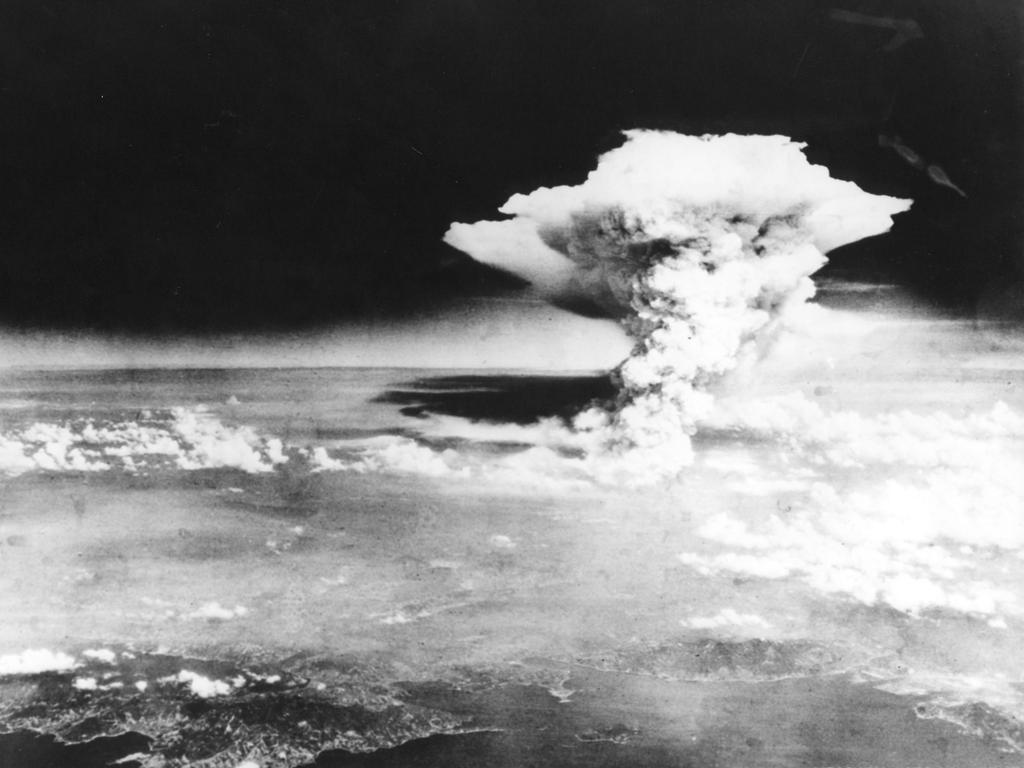
And US President Joe Biden has warned that the world is closer to “Armageddon” than at any time since the 1962 Cuban missile crisis.
Meanwhile, Mr Macron said in an interview on October 12 that France would not use nuclear weapons in response to any Russian nuclear attack on Ukraine.
“France has a nuclear doctrine that is based on the vital interests of the country and which are clearly defined,” he said.
“These would not be at stake if there was a nuclear ballistic attack in Ukraine or in the region.”
Appearing on state TV last month, Mr Putin appeared to crack a joke about nuclear war.
Speaking at the Valdai Discussion Club, a Moscow-based think tank with strong ties to the Kremlin, Mr Putin was asked by interviewer Fyodor Lukyanov about the rising threat.
“We became a little nervous recalling your comments at this very event four years ago that, ‘We’ll all end up in paradise.’ We’re not in a hurry, are we?” Lukyanov asked.
The Russian President remained silent and looked away for a chilling 10-second pause.
The interviewer broke the tension by saying: “You’re thinking. That in itself is somehow alarming.”
Mr Putin then attempted to make a joke, smirking at the audience before adding: “I did that on purpose to alarm you.”
He then chuckled to himself while the host and audience laughed nervously.
But the Russian leader went on to deny Moscow was preparing to use nuclear weapons.
“We have no need to do this,” he said. “There’s no sense for us, neither political nor military.”
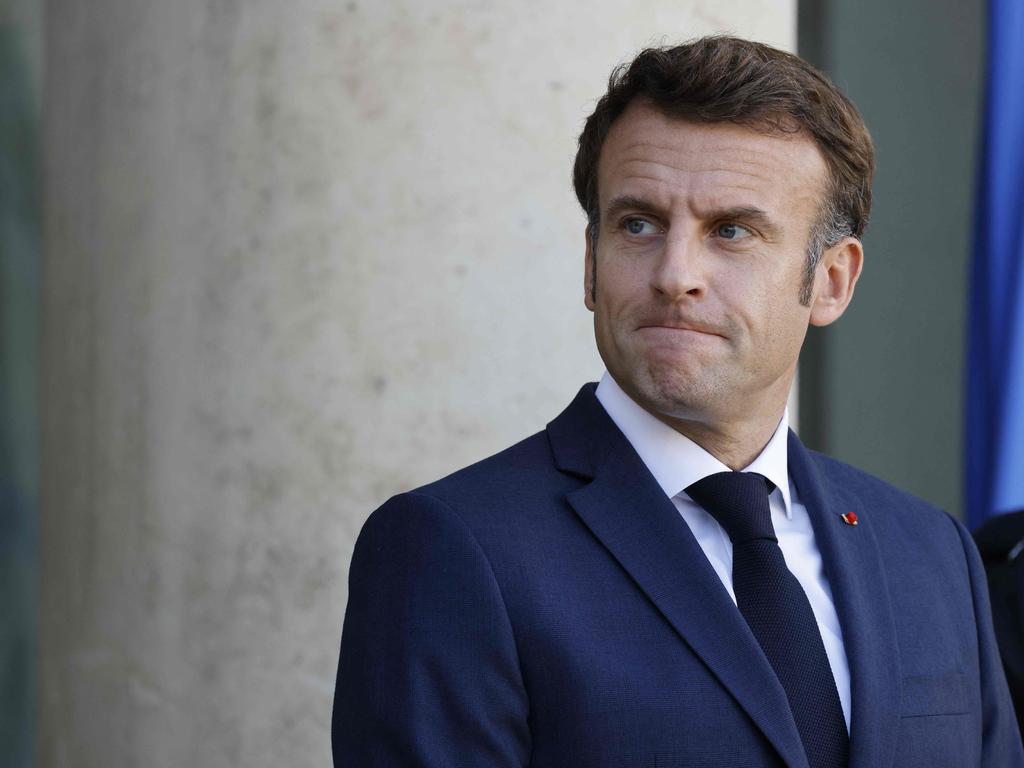
A day before his Moscow address, Mr Putin oversaw routine exercises involving a supposed retaliatory nuke strike.
Video released by the Russian military-run Zvezda website showed armed forces personnel in front of computers launching a Yars ballistic missile.
But Mr Putin insisted this was only in response to threats from the West.
“We’ve never proactively said anything about Russia’s possible use of nuclear weapons,” he said. “We’ve only responded with hints to comments voiced by the leaders of Western countries.”
Mr Putin faces growing public anger at home over his mobilisation of 300,000 Russians for his war.
Last week, he signed a law to conscript citizens convicted of serious crimes such as murder, robbery, larceny and drug trafficking, making it possible to mobilise hundreds of thousands of people who had previously been forbidden to serve.
The decree applies to prisoners who were conditionally convicted or released on probation, who typically must remain under strict supervision for up to 10 years, CNN and the Associated Press reported.
On Friday, Mr Putin said the Kremlin had already mobilised an additional 18,000 soldiers above its goal of 300,000 under the partial mobilisation.
Of that number, 49,000 were taking part in active fighting.
The draft led to another wave of tens of thousands rushing to leave the country. Russia’s ex-leader Dmitry Medvedev on Friday called them “cowardly traitors and greedy defectors”.
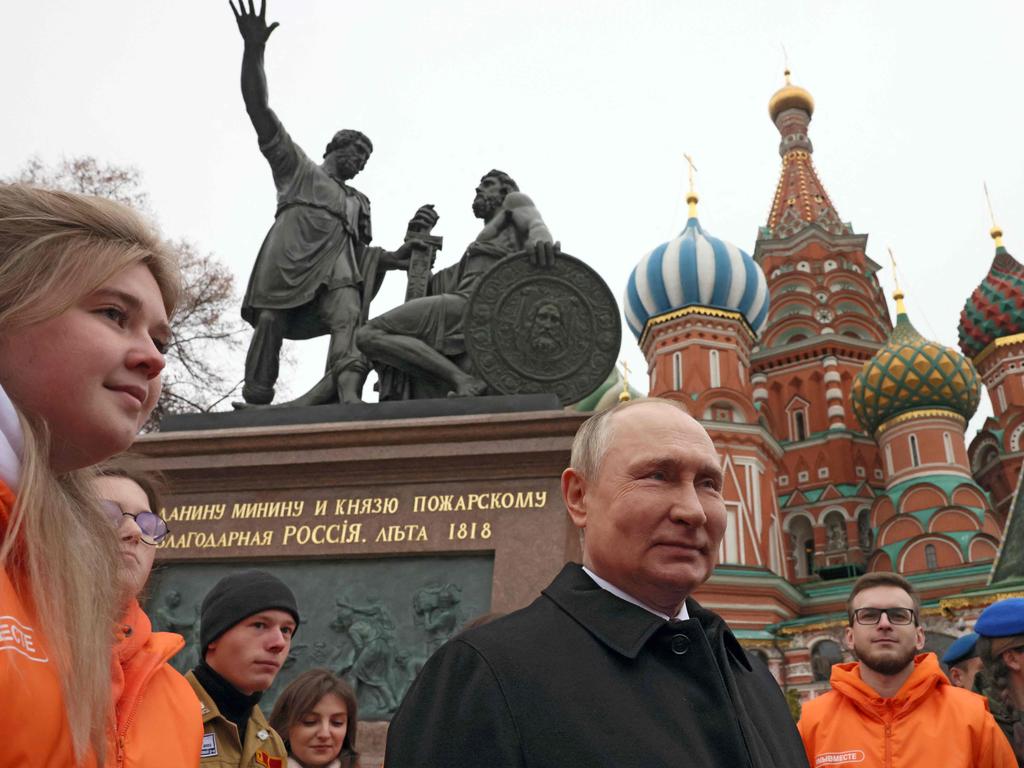
Kherson struck
It comes as Ukraine’s Russian-occupied city of Kherson was cut off from water and electricity supplies on Sunday after an air strike and a key dam in the region was also damaged, local officials said.
It is the first time that Kherson, which fell to Moscow’s forces within days of the February offensive, has seen such a power cut.
“In Kherson and a number of other areas in the region, there is temporarily no electricity or water supply,” the city’s Moscow-installed administration said on Telegram.
It said it was the “result of an attack organised by the Ukrainian side on the Berislav-Kakhovka highway that saw three concrete poles of high-voltage power lines damaged”.
Energy specialists were working to “quickly” resolve the issue, the Russian-backed authorities said, as they called on people to “remain calm”.
But the head of the regional administration, Yaroslav Yanushevych, blamed Russia for the power outages.
He said that in the city of Beryslav, around 1.5km of electric power lines had been destroyed, cutting off power to the city entirely because the “damage is quite extensive”.
“Probably, there will be no light in Beryslav until the city is completely de-occupied,” he wrote on Telegram.
“It is impossible to promptly repair the lines – there is a lack of specialists, equipment, and the Russian invaders will not allow this to be done.”
News of the outage followed reports that the Kakhovka dam in the Russian-controlled region of Kherson was “damaged” by a Ukrainian strike.
“Today at 10.00 [local time] there was a hit of six HIMARS rockets. Air defence units shot down five missiles, one hit a lock of the Kakhovka dam, which was damaged,” Russian news agencies quoted local emergency services as saying.
The RIA Novosti news agency quoted a local Moscow-backed official saying the damage was not “critical”.
Ukraine in recent weeks warned that Moscow’s forces intended to blow up the strategic facility to cause flooding.
The Kakhovka hydro-electric dam in southern Ukraine was captured by Moscow’s forces at the start of their offensive. It supplies Russian-annexed Crimea with water.
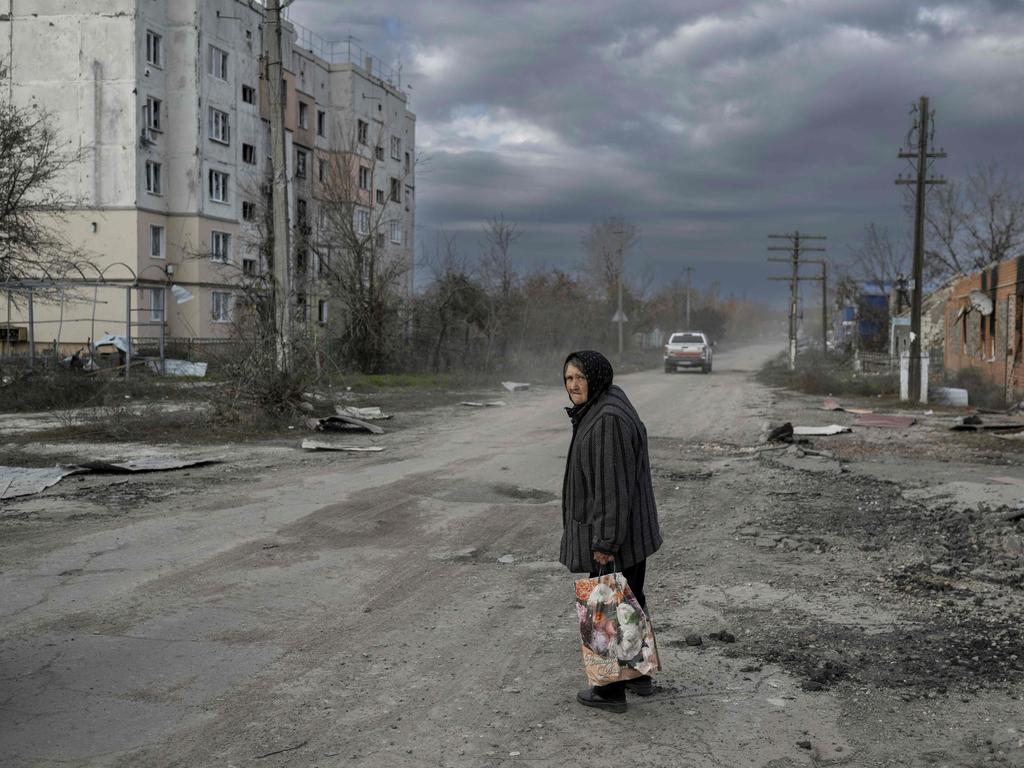
Flooding threat
For weeks, Russian forces have rained missiles and explosive drones on to Ukraine’s infrastructure, as a major Ukrainian ground offensive, propelled by Western arms deliveries, has pushed Russian troops back across swathes of the country.
“We are also aware of the fact that the terrorist state is concentrating forces and means for a possible repetition of massive attacks on our infrastructure, primarily energy,” President Volodymyr Zelensky said in his evening speech, referring to Russia.
“In particular, Russia needed Iranian missiles for this. We are getting ready to respond.”
Kyiv mayor Vitali Klitschko said he does not rule out a full blackout in Ukraine’s capital. “We are calculating various scenarios in order to withstand this and be prepared,” he said.
Russian strikes over the past month have destroyed around a third of Ukraine’s power stations and the government has urged Ukrainians to conserve electricity as much as possible.
But until now, Ukraine had only rarely struck Russian-held civilian energy infrastructure in territory annexed by Moscow, preferring to target Russian army supply lines.
As Ukraine presses a counteroffensive in the south, Moscow’s occupational forces in Kherson have vowed to turn the city into a “fortress”.
Russian forces have for weeks organised a civilian pullout from the Kherson region as Ukrainian troops advance, which Kyiv has called “deportations”.
Moscow-installed Kherson governor Volodymyr Saldo said he was moving people further into the region or to Russia because of the risks of a “massive missile attack”.
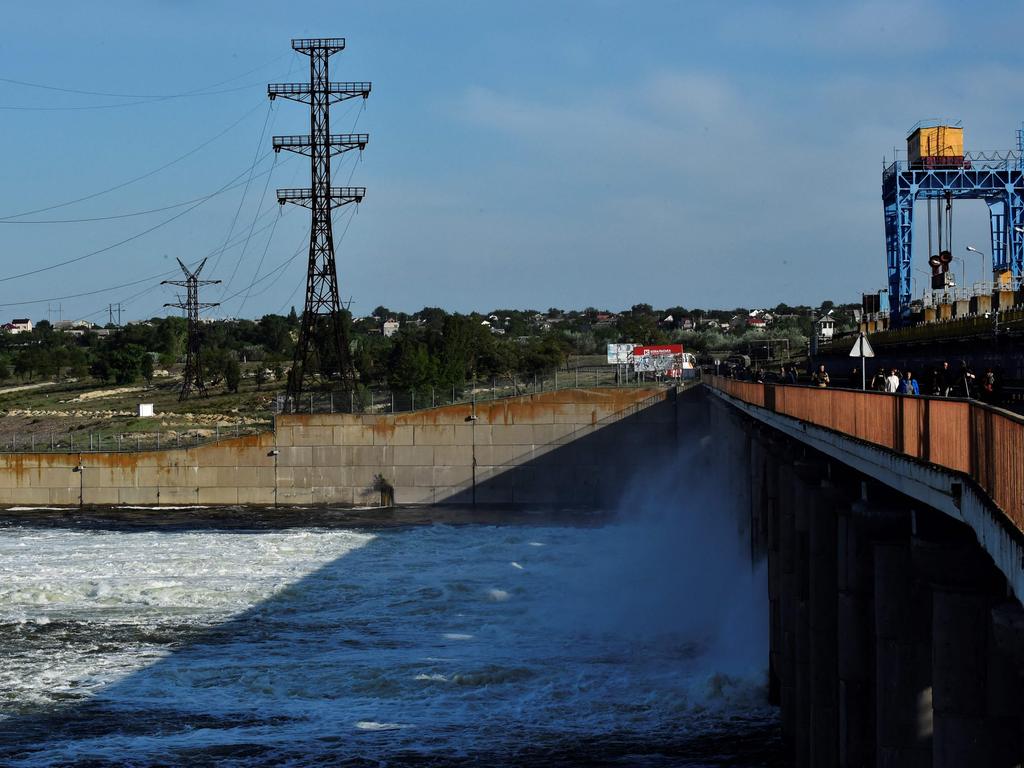
The dam’s destruction would lead to flooding of the left bank of the Dnipro River, he said.
Mr Zelensky said last month that Russian forces had mined the Kakhovka hydro-electric power plant with the intent of blowing it up.
Its destruction could cause flash-flooding for hundreds of thousands of people, he warned.
He said cutting water supplies to the south could also impact the cooling systems of the Zaporizhzhia nuclear power plant, the largest in Europe.
On Friday, the United States accused Russia of wanting to “freeze” Ukraine into submission since it has failed to triumph on the battlefield.
“President Putin seems to have decided that if he can’t seize Ukraine by force, he will try to freeze it into submission,” US Secretary of State Antony Blinken said after G7 foreign ministers met in Germany.
The West vowed to assist Ukraine to rebuild after the damage by Moscow’s strikes.
The top diplomats agreed a structure to funnel aid to Ukraine to replace infrastructure targeted by Russia after they held two days of talks in Muenster.
The United States, which has already committed to more than $US18.2 billion ($A28.3 billion) of security aid to Ukraine since the invasion began in February, is also examining options to address the damage.
Mr Biden’s National Security Adviser Jake Sullivan also met Mr Zelensky in Kyiv on Friday to reaffirm US support to Ukraine.
Mr Sullivan told a press conference in Kyiv that Ukraine had an “acute need for air defence in this critical moment”.
The Pentagon announced it will fund the refurbishment of T-72 tanks and HAWK surface-to-air missiles as part of a $US400 million ($A623 million) security assistance package for Ukraine.
– with AFP